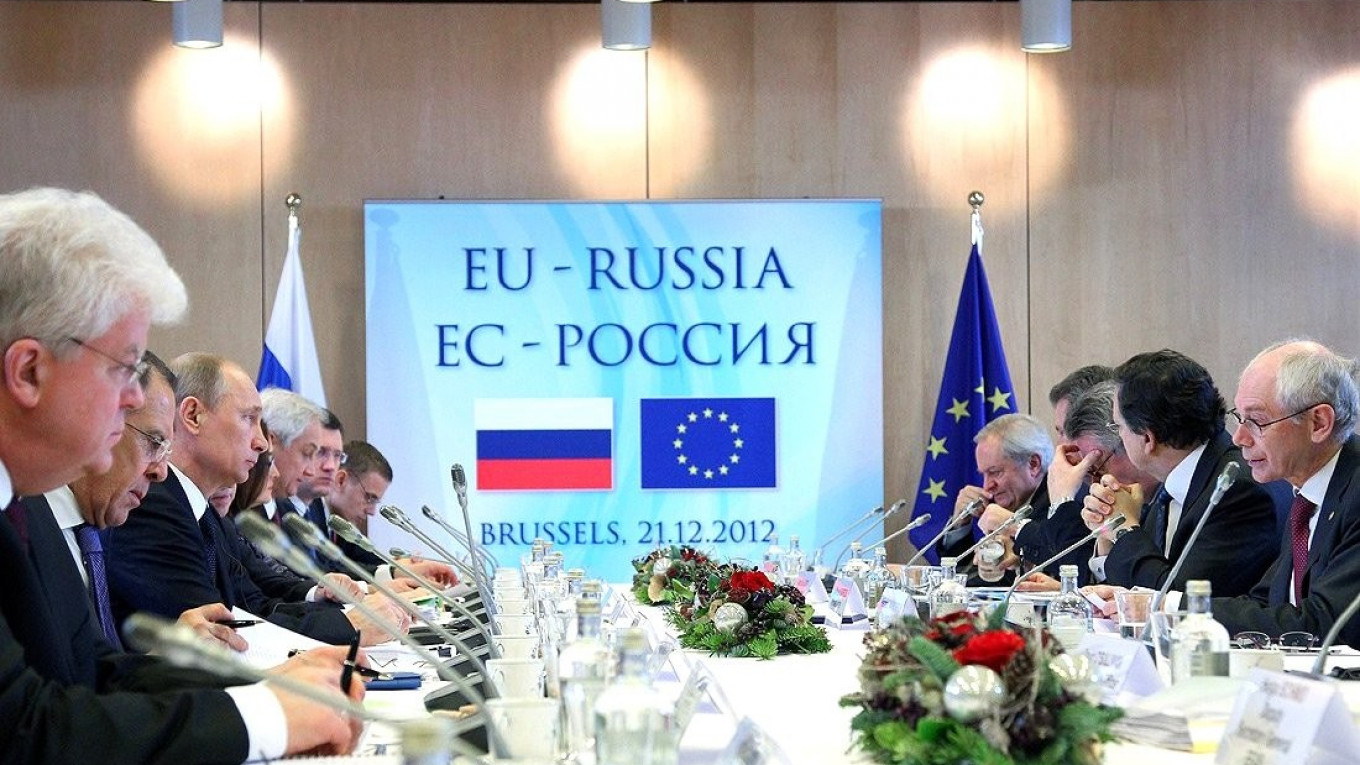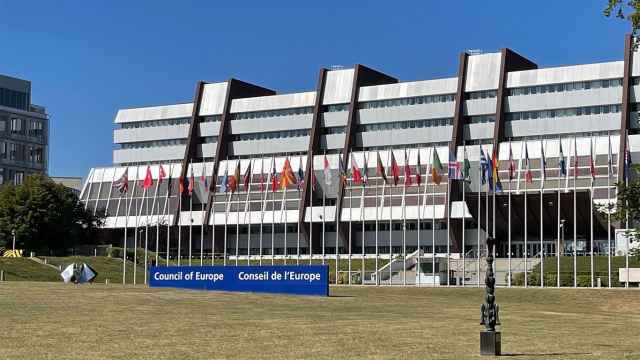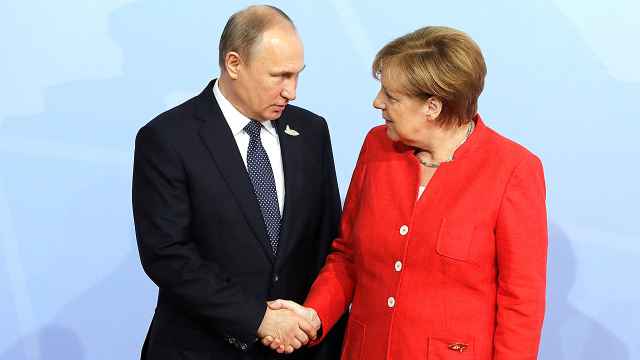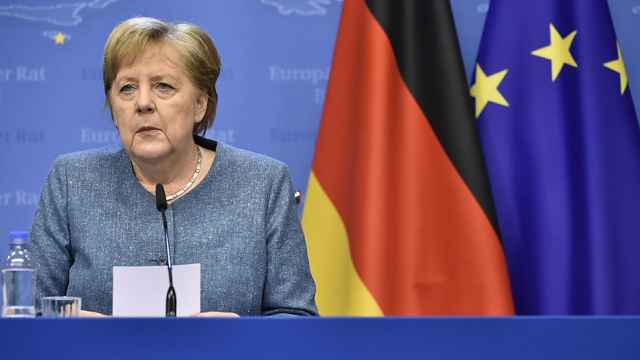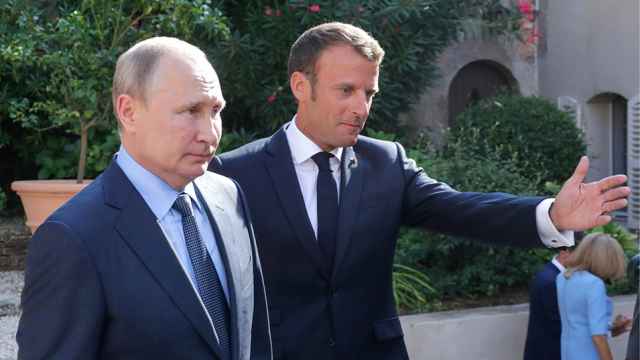The Kremlin on Friday said it "regretted" a decision by EU leaders to reject a proposal by Germany and France to resume summit meetings with Russian President Vladimir Putin.
"President Putin was and remains interested in establishing working relations between Moscow and Brussels," Kremlin spokesman Dmitry Peskov told reporters.
EU leaders said Friday they had rejected the proposal from German Chancellor Angela Merkel and French President Emmanuel Macron which came after U.S. President Joe Biden's meeting with Putin last week aimed at reducing tensions.
The 27-nation bloc's decision followed fierce resistance from member states — especially in Eastern Europe — worried about Moscow's aggressions.
Peskov said those countries—which he named as Poland and the Baltics — "often speak groundlessly" about a threat from Russia.
The last summit between EU chiefs and Putin took place in early 2014 just months before Russia annexed Crimea from Ukraine.
Kiev also opposed the idea of resuming summits, with foreign minister Dmitry Kuleba saying Friday that Ukraine wanted to hear an explanation from Paris and Berlin over their initiative.
Moscow has been at loggerheads with a number of Western capitals after a recent Russian troop build-up on Ukraine's borders and a series of espionage scandals that have resulted in diplomatic expulsions.
EU leaders said that they were "open to a selective engagement" with Moscow in areas aligned with the bloc's interests, such as climate change, health, the Iran nuclear deal and conflicts in Syria and Libya.
Relations have also been strained between Moscow and Washington, reaching their lowest point since the end of the Cold War.
A Message from The Moscow Times:
Dear readers,
We are facing unprecedented challenges. Russia's Prosecutor General's Office has designated The Moscow Times as an "undesirable" organization, criminalizing our work and putting our staff at risk of prosecution. This follows our earlier unjust labeling as a "foreign agent."
These actions are direct attempts to silence independent journalism in Russia. The authorities claim our work "discredits the decisions of the Russian leadership." We see things differently: we strive to provide accurate, unbiased reporting on Russia.
We, the journalists of The Moscow Times, refuse to be silenced. But to continue our work, we need your help.
Your support, no matter how small, makes a world of difference. If you can, please support us monthly starting from just $2. It's quick to set up, and every contribution makes a significant impact.
By supporting The Moscow Times, you're defending open, independent journalism in the face of repression. Thank you for standing with us.
Remind me later.


